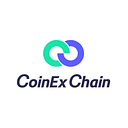B1B-A308 Security and Decentralization Characteristics of CSC Public Chains
CoinEx Smart Chain (CSC) is a public blockchain platform designed for decentralized finance (DeFi) applications. It aims to provide developers with an efficient, low-cost environment to run decentralized smart contract applications (DApps) and store digital assets. This article will explore the security and decentralization characteristics of CSC, with a focus on smart contract development and execution.
Security in Smart Contract Development and Execution
CoinEx Smart Chain (CSC) places a strong emphasis on the security of smart contracts to safeguard users and their assets. The platform implements a multi-faceted approach to mitigate potential vulnerabilities and ensure a safe and robust environment for smart contract development and execution.
CSC’s security measures encompass compatibility with the Ethereum ecosystem, rigorous smart contract auditing processes, and the promotion of secure coding practices. By adhering to these principles, CSC aims to minimize the risks associated with smart contract vulnerabilities and provide a reliable and secure platform for decentralized applications. The key aspects of CSC’s smart contract security approach include:
1. Ethereum Virtual Machine (EVM) Compatibility: CSC is fully compatible with the Ethereum ecosystem, allowing developers to leverage mature development tools and best practices from the Ethereum community. This compatibility ensures that developers can utilize well-tested and audited smart contract libraries, reducing the risk of introducing new vulnerabilities.
2. Rigorous Smart Contract Auditing: CSC encourages developers to subject their smart contracts to thorough audits by reputable third-party security firms. These audits help identify and rectify potential security flaws, such as reentrancy attacks, integer overflows, and access control issues. By promoting a culture of security audits, CSC minimizes the chances of vulnerable smart contracts being deployed on its network.
3. Secure Coding Practices: CSC encourages developers to follow secure coding practices and adhere to established smart contract development guidelines. This includes proper input validation, safe arithmetic operations, and secure contract ownership transfer mechanisms. By promoting best practices, CSC reduces the likelihood of common smart contract vulnerabilities.
Decentralization of CoinEx Smartchain (CSC) Blockchain Network
The CoinEx Smart Chain (CSC) ensures a high degree of decentralization through its Proof of Stake (PoS) consensus mechanism and permissionless validator selection process. The PoS system selects validators based on the amount of CET tokens (CSC native token) staked, making the network more environmentally friendly, performant, and resistant to 51% attacks compared to Proof of Work (PoW) consensus.
Another important factor contributing to CSC’s decentralization is its permissionless validator selection process. CSC allows up to 101 validators to participate in block proposal and validation. These validators are selected based on the number of CET tokens they stake, without requiring permission from any centralized authority. This ensures that the network remains decentralized and open to participation from a wide range of stakeholders.
CSC also incorporates an on-chain governance mechanism based on staked tokens. Token holders can participate in decision-making processes, such as proposing and voting on protocol upgrades, parameter changes, and other critical aspects of the network. This decentralized governance model empowers the community to steer the direction of the CSC ecosystem.
Furthermore, CSC allows token holders to delegate their tokens to nodes they trust, enabling them to participate in the validation process indirectly. This feature of delegated staking further enhances the decentralization of the network by allowing a broader range of participants to contribute to network security and earn rewards.
Despite the various measures implemented by CSC to ensure security and decentralization, it is essential to acknowledge that no blockchain platform is entirely immune to vulnerabilities or centralization risks. Continuous monitoring, regular security audits, and active community participation are crucial for maintaining the integrity and decentralization of the CSC network.
In conclusion, CoinEx Smart Chain (CSC) has put in place several mechanisms to address security vulnerabilities in smart contracts and maintain a decentralized blockchain network. Its compatibility with the Ethereum ecosystem, emphasis on smart contract auditing, and adoption of a PoS consensus mechanism with permissionless validator selection contribute to its security and decentralization characteristics. However, ongoing vigilance and collaboration among developers, validators, and the wider community are necessary to uphold these principles and ensure the long-term success of the CSC ecosystem.
